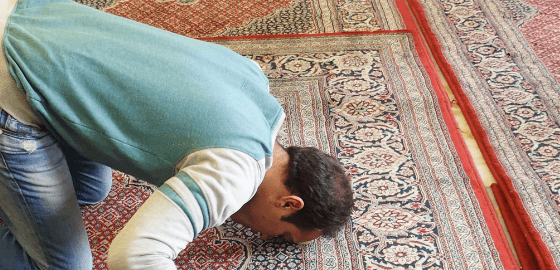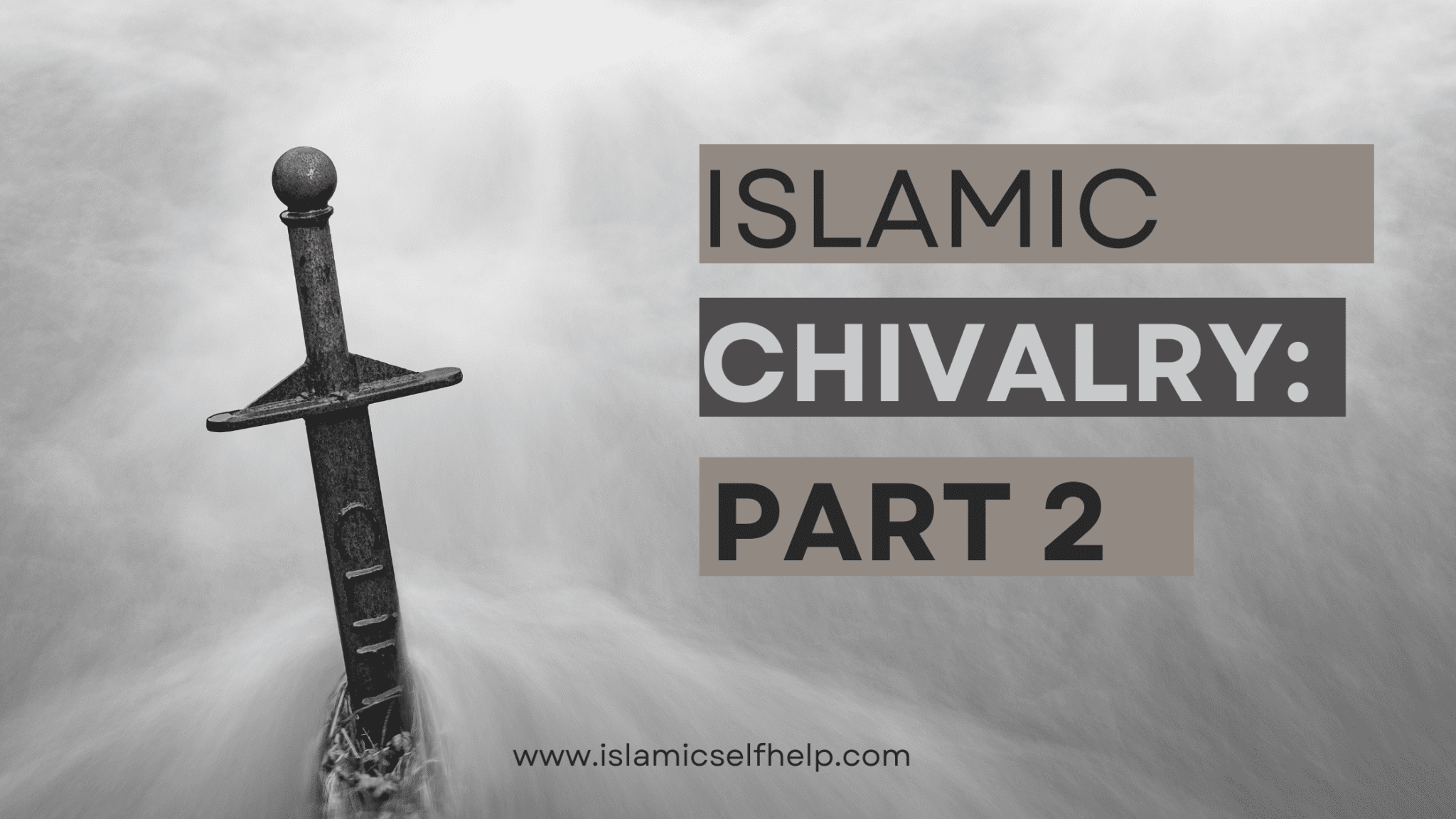In Part 1 of this series, we discussed some Islamic principles related to work ethic. In this second article, we will discuss ten important Islamic principles related to building and maintaining the bonds of brotherhood (or sisterhood) between Muslims. Muslim men should implement these principles when dealing with other Muslim men, likewise Muslim women should apply these principles when dealing with other women. Friendships across genders is discouraged in Islam, and should be avoided.
Brotherhood forms the foundations of community, after family. A man is only as strong as his close circle of friends. Building and maintaining quality friendships with righteous men is crucial for one’s personal development and growth. The following ten principles are extracted from classical works on chivalry and supported by hadiths and quotations from the pious predecessors. These principles were extracted to help form stronger foundations of brotherhood.
Do not seek out the faults of others.
Abu Huraira (RA) reported that the Messenger of Allah ﷺ said, “One of you sees the speck in his brother’s eye while he forgets the log in his own eye.”
Sahih Ibn Hibban 5761, Grade: Sahih
Abdullah Ibn Umar (RA) narrated that the Messenger of Allah ﷺ said, “Whoever conceals the faults of a Muslim, Allah will conceal his faults in this world and in the Hereafter.”
Sahih Muslim 2580, Sahih al-Bukhari 2422
You cannot build a relationship with someone if you are constantly seeking their faults. In order to form a friendship, you need to seek out the good in others. Seek righteous company, but do not seek perfection. There is nobody perfect on earth today. If you seek out the faults of the righteous, you will find it but it will cost you your relationship.
If someone is striving to please Allah, then that is enough. Be a brother to him and do not push him away from Allah. A person’s private sins are between him and his Lord. So do not seek them out, expose them, or use them against him. Focus on the good in others, and hope that they will do the same for you. Our goal as brothers in Islam is to help each other get to Paradise. It is not to tear each other down.
Maintain good relations with other Muslims
Abdullah Ibn Umar (RA) narrated that the Messenger of Allah ﷺ said, “The Muslim is a brother to another Muslim. He does not wrong him, nor surrender him. Whoever fulfills the needs of his brother, Allah will fulfill his needs.”
Sahih Muslim 2580, Sahih al-Bukhari 2422
The brotherhood of Islam is a sacred bond. Believers are bonded to each other by their shared faith. This faith makes the honor of your brother sacred to you. A Muslim man must care for other believers and strive to assist them in any way he can. He should always be a cause of benefit to society and never a cause of harm. A Muslim man’s strength and skills must be used to defend and protect the ummah, never to harm another believer.
Be generous always in spending on your friends.
Ibn Abbas (RA) reported that the Prophet ﷺ said, “Verily, Allah Almighty is Generous and He loves generosity. He loves the highest morals and He detests pettiness.”
Hilyat al-Awliya 5:28, Grade: Sahih
Generosity is the core characteristic of the Muslim man. It separates the true gentleman from the rest. Throughout history, every culture honored the generous among them. To be the best of brothers, you need to excel in generosity.
Our Lord is Al-Karim (Most Generous), and his Prophet ﷺ was the most generous of His creation. Generosity is expected when dealing with family, friends, neighbors, and guests. The Muslim man spends generously on all these people, being the best of hosts, knowing well that Al-Karim will provide for him. When you invite your friends over or treat them to a night out, spend as much as you without taking on debt. Be the first to pay the bill, and compete with your friends in generosity.
Maintain old friendships, do not let them die.
Abdullah Ibn Umar (RA) said that the Prophet ﷺ said, “Respect the loved ones of your father and do not cut them off, lest Allah extinguish your light.”
Adab al-Mufrad 40, Grade: Sahih
It is too easy to forget people as we grow and reach higher ranks in life. We tend to forget those who helped us when we were young, like our old friends and mentors, and our parents’ friends. Take time to seek out old friendships and rekindle them. Find ways to maintain the bonds of brotherhood with your heroes and old friends. Be the one to reach out and make things work.
Help your friends whenever and wherever possible.
Abdullah Ibn Umar (RA) said that the Prophet ﷺ said, “Allah helps the servant as long as he helps his brother.”
Sahih Muslim 2580, Sahih al-Bukhari 2422
Be generous with your time and skills. Be a servant leader. Lead your friends by being there for them. When they need help, be the first to help. Go out of your way for others, and Allah will take care of you. A Muslim man leads by serving and helping others. His selflessness leads to blessings in his life beyond his imagination. Be the one that people know they can rely on during difficult times.
Love each other for the sake of Allah and visit each other often.
Abu Huraira (RA) reported that the Messenger of Allah ﷺ said, “Verily, Allah will say on the Day of Resurrection: Where are those who love each other for the sake of My glory? Today, I will shelter them in My shade on a day when there is no shade but Mine.”
Sahih Muslim 2566
Love each other for the sake of Allah. Seek out righteous friends and love them for their righteousness. Your friends should remind you of Allah. They should increase your piety and bring you closer to Allah. You should have this same impact on them. A friendship for the sake of Allah is a friendship without any worldly motives. It is a friendship that stems from one common interest: the pleasure of Allah.
Tell your friends that you love them, and visit them often. Spend quality time together so that the bonds of brotherhood grow strong. A friendship for Allah’s sake cannot be broken easily. It is a strong bond that benefits both sides in this world and the next. And earns them a place of shade under Allah’s Throne on the Last Day.
Share in the joy of your brothers by joining in the celebration
Abu Huraira (RA) reported that the Messenger of Allah ﷺ said, “If one of you is invited for a meal, let him respond. If he is fasting, let him pray for the host. If he is not fasting, let him eat.”
Sahih Muslim 1431
Be happy for your friends when they succeed. Celebrate their successes with them. A believer holds no jealousy for his brothers. He wants them to succeed and to be happy. Their happiness is his happiness. He is happy for them when they graduate, get married, have children, get a good job, accomplish a life goal, or get a promotion. He wants nothing but good for them and is genuinely happy for them.
If you are invited to a celebration, then attend it as long as it is permissible to do so. Avoid events with prohibited or dubious activities. If the environment is pure, then attend their celebration and celebrate their milestones with them. Be genuinely happy for them, and pray that they achieve even more success and happiness in this world.
Be joyful and happy when spending time with your friends and brothers.
Abu Dhar (RA) reported that the Messenger of Allah ﷺ said, “Smiling in the face of your brother is charity.”
Tirmidhi 1956, Grade: Sahih
Muhammad ibn al-Nadr (RA) said, “The first part of manliness is a cheerful face. The second part is kindness to people. The third part is fulfilling the needs of others.”
al-Mujālasah wa Jawāhir al-‘Ilm 828
Do not be grumpy and mean to others. A Muslim man is a source of joy for those around him. Some brothers mistakenly assume that being righteous means being stern and harsh to others. This includes their family and friends. These men sap the joy out of any room they enter. People disassociate with them because they bring doom and gloom wherever they go.
A Muslim man must be a source of cheer and joy to others. There is a time for strictness and harshness, but these should be used sparingly and only when necessary to stop an evil. The general personality of a believer is one of joy and cheerfulness. The Prophet ﷺ was a cheerful man. He was always smiling and treated people well. People enjoyed spending time around him, and enjoyed his company. A believer must model this character in social settings.
Treat people as you would like them to treat you.
Anas ibn Malik (RA) reported that the Prophet ﷺ said, “None of you truly believes until he loves for his brother what he loves for himself.”
Sahih Bukhari 13, Sahih Muslim 45
The golden principle of social interactions. We must love for others what we love for ourselves. We need to treat people as we wish to be treated. If you want kindness, be kind. If you want good company, be good company. And if you want a life of peace and happiness, then be a source of peace and happiness for others.
Be selfless when dealing with others. Want success for them in both worlds. Be happy at their success and celebrate with them. Pray that they are always happy and successful. Be there for them during their difficult times, and treat them like your own family. Be an honorable man who treats others with honor. A true believer wants the best for everyone and holds no grudges or jealousy in his heart for his friends.
Be easy-going with your friends and join them in their activities.
Qurrah ibn Khalid reported that he asked Muhammad ibn Sirin, “Did the companions have fun?”
Ibn Sirin replied, “They were nothing but human. Ibn Umar (RA) would have fun and compose songs of poetry.”
Hilyat al-Awliya 2437
There is no sin in enjoying permissible entertainment. Do not be the buzzkill of your friendships. Spend quality time with your friends doing permissible, yet fun, activities. Play sports together, go camping, share a few laughs over a cup of coffee, and genuinely enjoy each other’s company. Islam is a not an overstrict religion that prohibits fun. There are millions of permissible ways to have fun. Find some fun activities that you and your friends enjoy, and make time to do these activities together.
Our History of Islam online course is currently on sale for only $15. The sale ends in 9 days, grab it at the sale price here.





